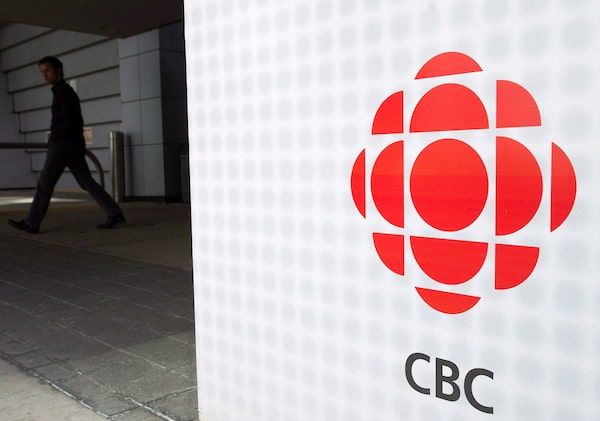
The news industry’s increasing reliance on paywalls is precisely why the CBC should offer a free, taxpayer-backed digital alternative that ensures all Canadians have access to reliable news and expert opinion without regard for their ability to pay for it, Michael Geist writes.Nathan Denette/The Canadian Press
Michael Geist holds the Canada Research Chair in Internet and E-Commerce Law at the University of Ottawa, faculty of law.
The CBC’s copyright infringement lawsuit against the Conservative Party over the use of seven short video clips in a campaign ad and several Twitter postings sparked a torrent of criticism, as even CBC supporters wondered what executives were thinking. The public broadcaster claimed it was defending the independence of its journalists and journalism, yet the opposite predictably occurred, with many believing the lawsuit itself demonstrated a political bias.
Not only that, it caught two CBC journalists – Rosemary Barton and John Paul Tasker – in the crossfire by naming both as plaintiffs in the lawsuit. The CBC now says it will file an application to remove them from the suit, but the potential reputational harm arising from suing a political party may be difficult to undo.
The lawsuit is all the more puzzling because the legal claims are quite weak. The majority of the seven clips do not even include CBC journalists. Three are taken from the English-language leaders’ debate and one from a town-hall meeting with Liberal Leader Justin Trudeau. Of the remaining clips, Ms. Barton says nothing in one, and the others run for a total of 10 seconds.
Given their short duration, appropriate attribution and legitimate use for political expression, the Conservative Party has a strong fair-dealing argument, which permits reasonable uses without requiring rights holders’ permission. In fact, the Supreme Court of Canada issued a ruling just last month that strongly affirmed users’ rights and the need for balance in copyright. In other words, the CBC may own the clips, but copyright law does not grant them absolute control over all of their uses.
The decision to file the lawsuit just over a week before the Oct. 21 election is similarly inexplicable. The Conservative Party may have had a strong legal case, but it nevertheless took down the videos containing the clips before the lawsuit was even launched. The CBC could easily have waited until after the election to seek an injunction blocking further use of its content. Instead, by filing in the middle of the campaign, it placed its reputation and that of its journalists at risk.
Yet, perhaps worse than poor legal judgment is what the CBC’s effort to use copyright to stifle political expression says about its strategic thinking. The public broadcaster talks about embracing the digital environment, but over the past two years, it has advocated for new taxes on internet and wireless services, supported website blocking without court oversight, likened foreign internet-streaming services to cultural imperialists and signalled that Canadian television producers should look elsewhere if they’re thinking of partnering with services such as Netflix.
Ironically, rather than battling the internet, the CBC should recognize that the online world provides an exceptional opportunity to demonstrate its value to Canadians. While some have characterized the CBC’s role in providing digital news as an unfair, publicly subsidized competitor to private news services, the industry’s increasing reliance on paywalls is precisely why the CBC should offer a free, taxpayer-backed digital alternative that ensures that all Canadians have access to reliable news and expert opinion without regard for their ability to pay for it.
Moreover, the CBC could further distinguish itself from private broadcasters and media organizations by following the recommendation in the Public Policy Forum report Shattered Mirror to adopt an open licence for its news content. That approach would allow others to freely use the content without fear of the kinds of lawsuits it just launched. The Liberal government has played around the edges of this idea, using its 2018 budget to announce $50-million in support for local journalism to create open-source news content, and committing in its 2019 election platform to requiring the CBC to share its digital tools with journalism startups and community newspapers.
The CBC will be back in court on Tuesday as it tries to withdraw its journalists as named plaintiffs from its copyright lawsuit. But this incident reinforces that it will take more than an amended pleading to fix a public broadcaster that has lost its way in the digital world.
Keep your Opinions sharp and informed. Get the Opinion newsletter. Sign up today.